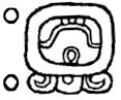 Today is a day to make peace with your life. It combines the spirit of forgiveness with the number of the feminine and life. This is potent a day to ask for forgiveness from the women in your life where it is necessary.
Today is a day to make peace with your life. It combines the spirit of forgiveness with the number of the feminine and life. This is potent a day to ask for forgiveness from the women in your life where it is necessary.
If you have been holding guilt over, or blame towards, any particular woman, today is the day to forgive and move on. The energy of resentment is probably having a greater effect on you rather than her, holding you back from progressing. This applies not just to the women in your life, but the feminine aspect of life in general. This is the day to ask forgiveness. Also, to forgive yourself, for the times when you could have embraced more feminine qualities such as compassion and nurture.
Sometimes we have forgotten the feminine nature of where we all came from, whether it is the body of our mother or the Earth herself. This is often caused by imbalance within the generally male dominated society. This is a day to recognise the times when we allowed ourselves to become part of that imbalance, and ask forgiveness for them. After all, as we progress through this trecena of ripening, the trecena Q’anil, how can we reach joyful and abundant ripeness if we are carrying this bitterness?
It is a day to forgive yourself for the things in life you would rather leave in the past. Light a candle and allow the flame to burn away any guilt surrounding any past actions. As the candle burns and cleans your life, feel the other aspect of Ajmak arriving. Allow Ajmak to bring sweetness of redemption into your life.
I’m sorry
Please forgive me
Thank you
I love you
Nawal Ajmak
Ajmak is the nawal of pardon and forgiveness, the nawal of redemption. It is the energy of being human, of falling down and getting back up again, and giving those chances to others.
When the creators fashioned the four first men, the Bacab’ob, they created them as equals. These four first humans had superhuman abilities, including the ability to see through space and time. As equals were not desired, the gods smoked the mirror of perception, giving us our human set of senses. When we lost the ability to see through time, we lost the ability to see the true consequences of our actions and thus we needed to start asking for forgiveness. Sometimes even well meaning actions can cause problems at a later date. Ajmak represents this ability to forgive others, the ability to forgive ourselves and the ability to accept forgiveness.
Ajmak is a sensual energy, which creates some of the reasons for it’s needing to be forgiven. It is kind and very lovable, but irresponsible. It can be a very talented energy, with great ideas. However it can also be very easily distracted, especially by anything that makes it feel nice. This often leads Ajmak to failing to fulfil it’s true potential, although due to it’s lovable nature it is easy to forgive. One of the lessons with regards to the Ajmak energy is learning to forgive oneself.
The Number Nine
The number nine is the number of lunations in the human gestation period and in the sacred calendar. The sacred calendar is known as a calendar of life, and it is women that give life. As such the number nine is seen as the number of life and the number of the divine feminine. It gives all that it is attached to a strong feminine presence. It is a day on which women may wish to give thanks for their gifts.

















